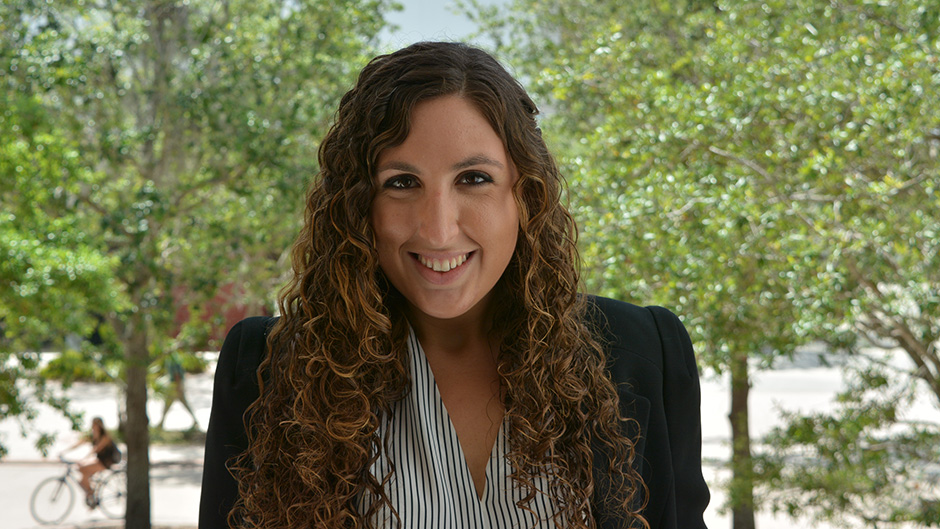As part of a HOPE Fellowship, Jocelyn Ezratty spent the summer interning at the Bronx Criminal Division of the Legal Aid Society of New York where she assisted clients and aided in the prevention of unwarranted collateral effects of criminal charges. The third-year law student received her undergraduate degree in Legal Studies with minors in Sociology and Entrepreneurship from the University of Central Florida. During her second year of law school, Ezratty served as an intern in the Health Rights Clinic. There, she had an opportunity to represent indigent and disabled clients in obtaining government benefits. During her time in the Health Rights Clinic, she also advocated for policy reform for more efficient and effective processing of disability-related Medicaid applications through the Florida Department of Children and Families. During her 3L year, she continues to serve impoverished and disabled clients in Miami as a Clinical Fellow for the Health Rights Clinic.
Q: How did your HOPE Fellow Experience change your law school experience?
JE: I was given an opportunity to immerse myself into issues of indigent people in society, whose voices are hushed by so many counteracting groups in society. This gave me the opportunity to take what I learned as a sociology minor in college, and better understand how the struggles and issues play out in reality through building intimate relations with clients and family members.
I knew a little about the challenges that low-income individuals face from previous community outreach participation, but not to this extent.
I was shocked and disappointed by so many aspects of our government that further harm indigent individuals, while the same processes help or do not impact people of a higher-social economic status. Now, I have a better understanding about how legal processes are prejudicial in nature.
I found examples of unfair systems, such as the bond bail system, immigration law and the requirements that only the defense attorneys but not the prosecutors are educated about potential consequences, and with Department of Motor Vehicle registration-related issues for those with a criminal conviction.
The treatment of marginalized people that I witnesses included many instances of unfair human interactions, including down-talking by court officers specially to this group of people in the courtroom, police officers making unlawful arrests and then trying to cover it up, and judges making noticeably indigent defendants stand in front of them with painful handcuffs for extended periods of time.
Q: How did the experience affect your trajectory as a law student?
JE: I feel like it has become my obligation to teach people about what I learned. This is an ideal time in my life to educate others because people are so curious about what I am learning as a law student.
I now talk to other law students about my experiences as a HOPE fellow so that they have a more comprehensive view of what is going on (especially people who want to work as prosecutors).
I know that I will definitely have to find a way to fit public interest work into my future career, although I do not want to work in a public interest job. I will also want to find a career, which in some way, helps people whose voices are not as strong because of their income level and status.
Q: And your trajectory as a lawyer?
JE: Now I see myself fighting to ensure that both rights and access to necessary assistance are protected, in an effort to minimize some of the obstacles that people of lower socio-economic income status have to battle.
For example, making sure Medicaid accurately pays healthcare costs incurred by treatment of people who are indigent, so that healthcare sites continue to accept and treat Medicaid patients well.
I also see myself doing public interest throughout my career.

